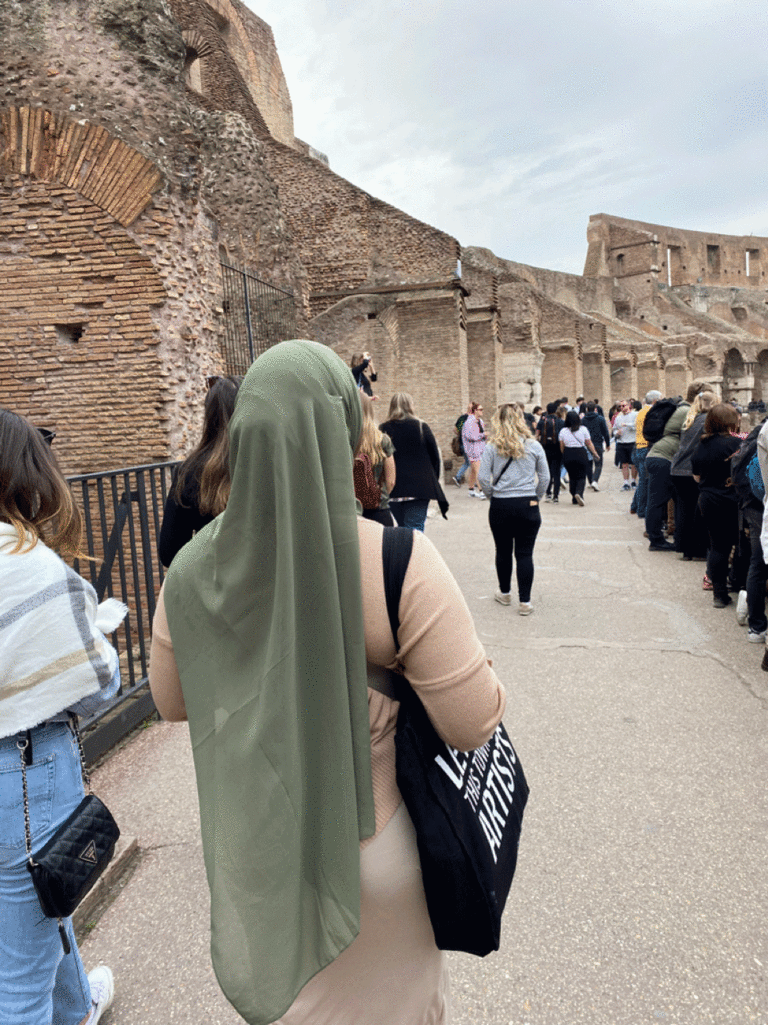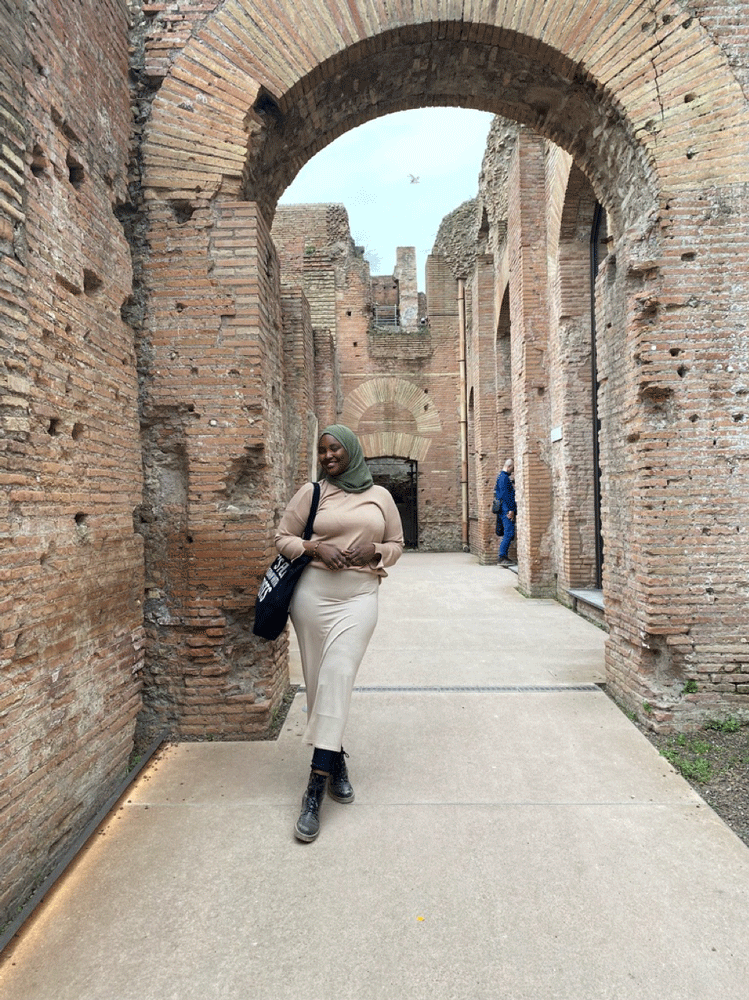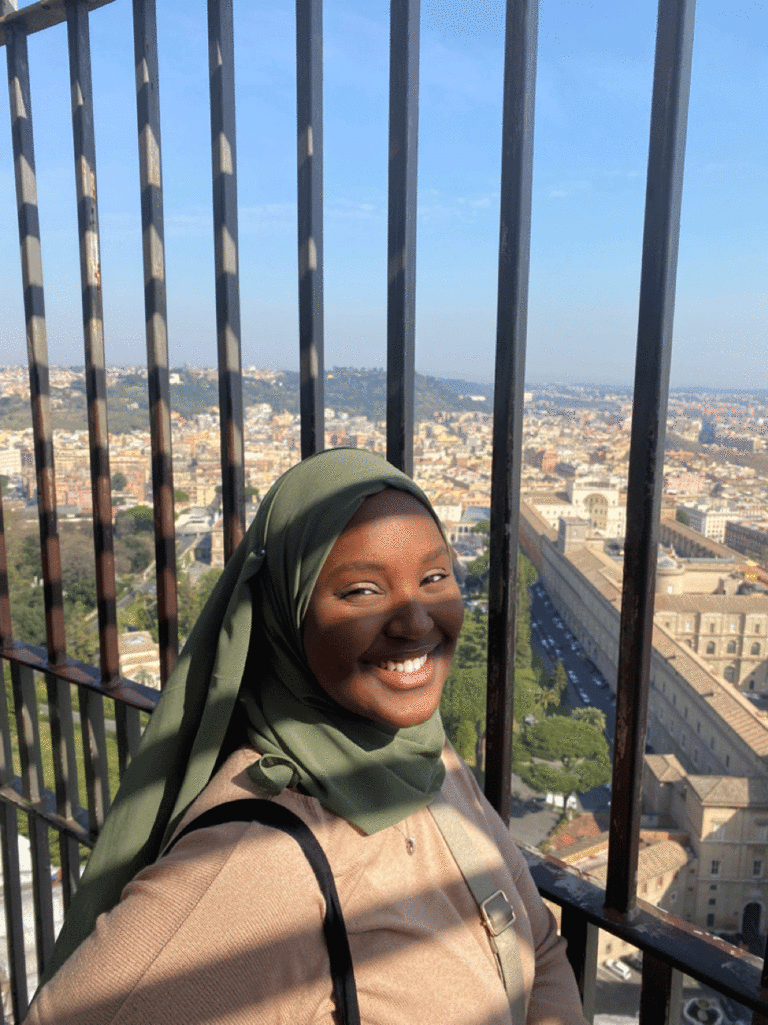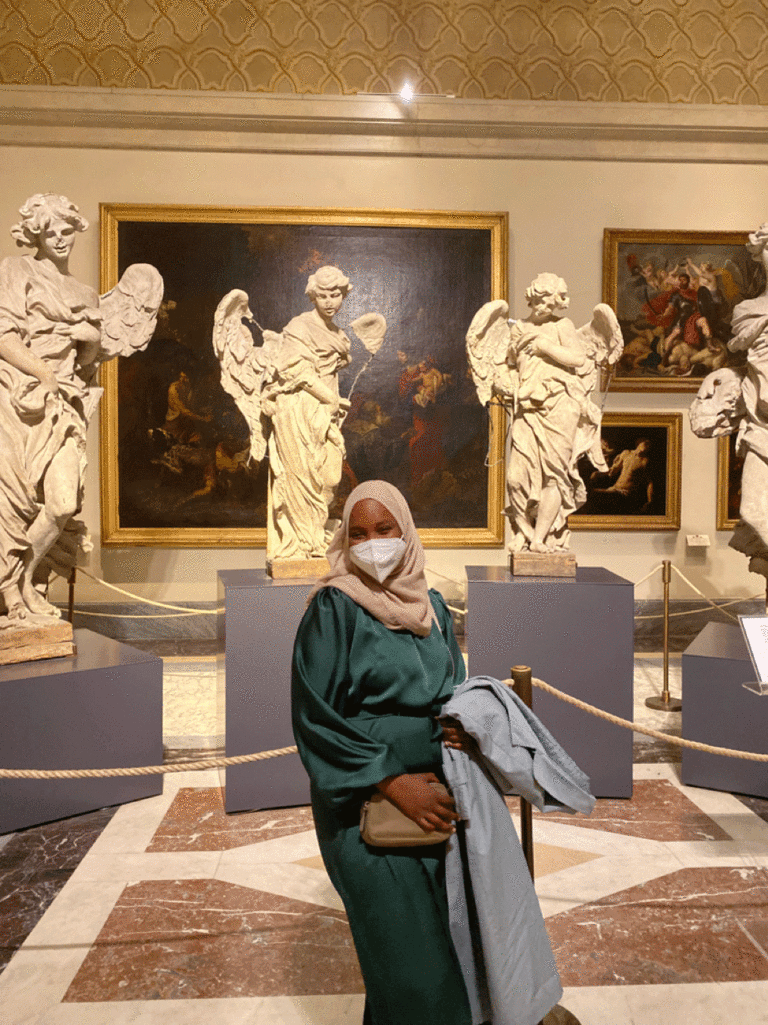
Hello everyone!
My name is Sauda Abdullahi and I had the amazing opportunity to spend my 2022 spring semester in London, England. I'm now a fourth-year public health student at the University of Iowa. I decided to go abroad before I even began college because it's always been an interest of mine to explore different cultures outside of the one I grew up in.
I chose my program mainly because of its focus on the field of public health, as well as the program being in London, where I've always wanted to go. One of the best things about choosing to study abroad in Europe was that I was only a few hours away from the next country!
The most transformative thing about my experience was I was getting to witness people in cultures different to the ones I’ve grown up with; cultural immersion is always fascinating to me and I’m always excited for new experiences. I grew up with parents who were from a different culture to the one I was raised in and from that I was always sure to be respectful of my surroundings in the new place I was in, even when I didn’t understand it. I advise other students traveling abroad, or any individual traveling, to be self-aware and open minded about what is considered “normal” and acting respectfully to people in their home countries. Practicing unraveling some possible ethnocentrism was a great step to fully embracing the culture or country the way I did.
"I valued my experience abroad so much and would recommend it to any student or individual who is thinking about it. It was quite literally life-changing and I’m very grateful to have ever had the opportunity to experience it."
I made a few friends in the first couple of weeks of my program; like-minded people who were also learning public health practices. I enjoyed that we all got to figure out things like transportation, navigating courses, and cultural norms together. I found the educational methods in the UK to be very different to the ones I was used to. There was more of a focus on presentations and papers than on exam testing. I appreciated this, especially as a study abroad student, because I learned more from the discussions with the instructors who lived in London, than I think I would have with any textbook-focused course. We had discussions about the U.S. health system practices in comparison to European systems like universal health care. We also talked about everyday cultural practices that were different from each other like how iced coffee is not really a popular concept in many European countries.

We traded stereotypes of each other’s countries and even found some of them to be semi-true. A lot of English people ARE very soft-spoken, and our instructors said many of our presentations were great because of how loud we tend to speak when presenting. Some things were humorous, and some things left me awestruck. I didn’t notice how the differences in our histories caused such differences in what we value today in our respective nations.
Another component of my program was volunteering with local organizations and I ended up working with a food bank warehouse that focused on reaching out to under-resourced communities and providing them with a needed food source. This experience was eye opening for me as I learned that the reasons why people lack access to food sources in the UK is very different to the U.S. The gap in access in the UK is also much smaller than in the U.S. and it made me think, as a future health practitioner, what methods we could possibly adopt in our own nation to close the access gap.
A lot of my learning in my courses and through volunteering was due to just understanding how to take in a new culture, the significance of learning their history, practices and values, and how this can help me have a well-rounded picture of where I’m visiting. When I returned home, I found it was easier to apply this same practice to the United States and it made it easier to assess what changes I could provide in any future position as a health practitioner.
Due to the COVID-19 pandemic, we unfortunately did not get to go to Jamaica for this program, but it was important to me while I was studying in London to travel to the surrounding countries and explore whatever opportunities were available. I traveled to Scotland, Ireland, Portugal, and Italy. Each of these visits taught me so much about myself and the responsibility I needed to have to explore somewhere unfamiliar to me.
The language differences could be very difficult, as well navigating payments and transportation. Safety was a priority and I found it was very important to always notify someone where you are and know very basic sentences to get to where you need to go. A lot of locals are very kind and considerate and will help to the best of their ability, but I quickly developed a level of responsibility and self-awareness that I had never had to use in order to ensure my own safety and to be respectful to where I was visiting. With these newfound skills and practices, it made every visit to a new place so extremely amazing; I tried new foods, went to places I’ve only ever heard of, met people that came from the opposite side of the world to me, and most importantly learned more about myself than I ever had the chance to.
I valued my experience abroad so much and would recommend it to any student or individual who is thinking about it. It was quite literally life-changing and I’m very grateful to have ever had the opportunity to experience it.
Please note that the opinions and views expressed are solely those of the students and do not reflect or represent the views of International Programs or the University of Iowa.
International Programs (IP) at the University of Iowa (UI) is committed to enriching the global experience of UI students, faculty, staff, and the general public by leading efforts to promote internationally oriented teaching, research, creative work, and community engagement. IP provides support for international students and scholars, administers scholarships and assistance for students who study, intern, or do research abroad, and provides funding opportunities and grant-writing assistance for faculty engaged in international research. IP shares their stories through various media, and by hosting multiple public engagement activities each year.



